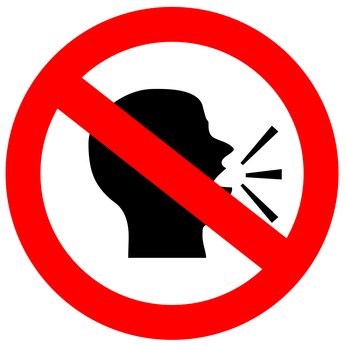 We spend the early parts of our lives adding to our vocabulary. Teachers and parents want us to learn new words. And research shows that vocabulary is a good predictor of success. And yet I am asking you to take four words from your vocabulary?
We spend the early parts of our lives adding to our vocabulary. Teachers and parents want us to learn new words. And research shows that vocabulary is a good predictor of success. And yet I am asking you to take four words from your vocabulary?
Yes I am.
To be clear, it isn’t like you won’t “know” the words any more; I am simply suggesting you don’t use them (or use them very sparingly and with great thought before you use them).
Let’s get right to it.
Busy
When used as “Man, I’m busy,” or when answering the question “How are you doing?” with “I’m busy.” If you want to make it worse, insert the word “too” in front of it, as in “too busy.” The fact is – busy is an excuse. We use it as an internal excuse as to why we didn’t get something done, but it gets much worse. When we use this word with others, they empathize and it seems we are getting a pass from them, but what we are really telling them is that we can’t help them, speak with them or support them, because the stuff we already have on our plate was or is clearly more important than they are.
Say (and think) this word less and you will get more done, prioritize better and make time for others on your team.
But
Insert the word “but” into any conversation and you are erasing the point made by the other person and telling them that what you are about to say (after the “but”) is more true and more important. So if your goal in a conversation is to come to common understanding, agreement or perhaps to persuade them in some way, tell me how using the word “but” helps you?
It is a habit you can break (I am living proof), and the way to break it is to change your approach to “and” – both in terms of the word you use and your mindset in the conversation. Your best chance to engage them and even persuade them starts with and, not with but.
Blame
There are few organizations with an inventory shortage of blame, but wouldn’t it be nice to work in a place where there was? Blame keeps us from understanding and solving problems. Blame is generally counterproductive, because even if the mistake was made by and can be traced back definitively to a person, the mistake has already happened – and can’t be changed.
Blame keeps us from moving forward and allows us to feel OK because “it wasn’t my issue”. Rather, since the events are past, why not focus on fixing the process so the mistake isn’t repeated, rather than blaming people for the mistake.
Again, how exactly is blame helping us achieve our goals?
The most overused word in your organization, profession or industry
You know what it is. You thought of it as you read these words – the buzzword, the cliché, or the overly vague. Why should we stop using that word? Because it has no meaning, or is too watered down to mean anything anymore, or perhaps mostly because when you use it you aren’t communicating anything positive or valuable. Hint – if people are mentally (or actually) rolling their eyes when you say the word, it isn’t helping you.
Want some examples? LinkedIn recently released their 10 most overused words on profiles in 2013 (here is the list). What those words have in common with your word is that they are no longer communicating anything meaningful.
And if that is true, why would you use them?
A Summary
Here’s my thought in brief:
Banish busy, but and blame from your vocabulary and you will lead more effectively. Click to tweet this Tweet.
More fully, none of these words aid us as leaders or in communicating messages that will move us, our teams and our organizations in the direct we want to go. So let’s use them less and watch our success soar.

I wholeheartedly agree with your suggestion on using “But.” Usually when people use this word, it completely invalidates the first part of their communication. I agree also that using the word “and” is a much better way of joining two thoughts and it helps make those two thoughts much more positive. Thanks for posting this!
Most overused and meaningless word in 2013 has to be engage, engaged, engaging.
Charlotte – those words certainly get lots of use.
Kevin 🙂
Yes, leaders must remove those words. I’ve found the leaders who take time to connect and talk with their people greatly increase the influence and trust they have with those people. That is never done by saying “I’m too busy.” Great post!